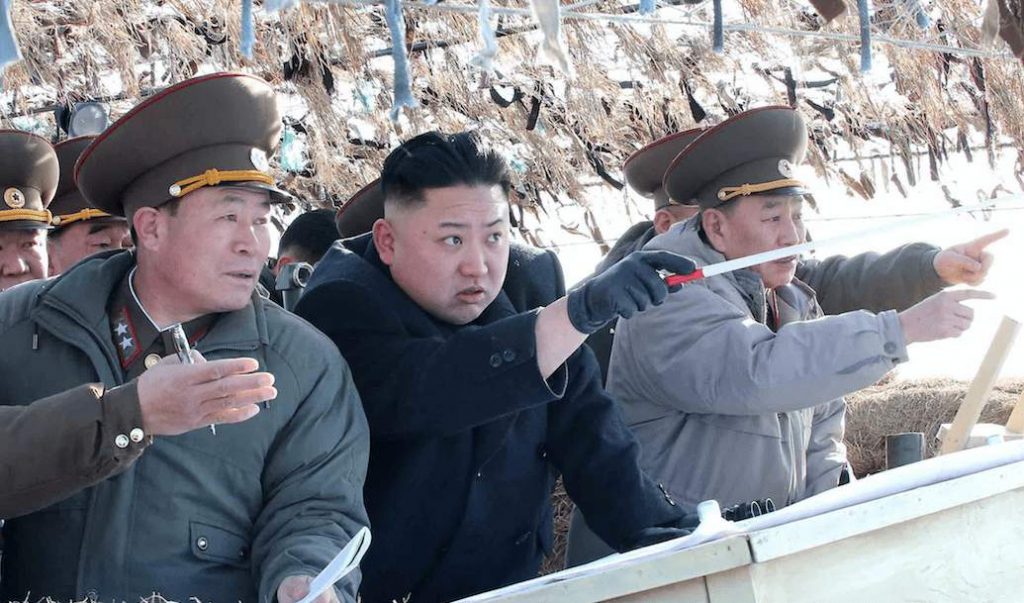
A photo released by KCNA news agency on March 12, 2013, shows North Korea leader Kim Jong Un visiting the Wolnae-do Defence Detachment on the western front line. (KCNA/Xinhua/Zuma Press/MCT)
A report by South Korea’s Yonhap news agency that was picked up by the Washington Post suggests that the move was a way to ease tensions within the military before a possible denuclearization deal is struck with the U.S.
“The North appears to have brought in new figures amid the changes in inter-Korean relations and the situation on the Korean Peninsula, as the previous officials lacked flexibility in thinking,” according to a source that spoke with Yonhap.
The officials who were reportedly dropped included some of North Korea’s highest-ranking individuals.
The second individual, defense chief Pak Yong Sik, was dismissed and replaced by No Kwang Chol, first vice minister of the Ministry of People’s Armed Forces.
The third, Kim Jong Gak, director of the General Political Bureau of the Korean People’s Army, was replaced by Army Gen. Kim Su Gil.
Kim Jong Gak’s dismissal was the only one to have been officially confirmed by North Korean state media so far, with the country making no immediate reference to any other military changes.
According to U.S. intelligence officials, the shake-up within Kim Jong Un’s inner circle likely represents a generation shift.
Each of the replacements is younger than his predecessor and may also be more willing to embrace changing relations on the Korean Peninsula with the U.S.
According to Kim Yong Hyun, a professor of North Korean studies at Dongguk University in Seoul, the new military leadership brings expertise in economic affairs rather than combat strategies, and could signal that North Korea is “pursuing a new policy to become a developing country without nuclear weapons, rather than a poor country with nuclear weapons.”
“He has chosen the route of pursuing denuclearization and a peace treaty through dialogue, and is appointing a new generation of military leaders to set the tone for his vision,” Kim Yong Hyun said about North Korea’s leader.
Kim Yong Hyun also suggested that Kim Jong Un may finally be abandoning some of the “leaders of the past, of Kim Jong Il’s generation.”
“Kim Jong Un has chosen a new leadership who reflects his new approach and can more naturally propagate his new policies to bring stability within the military,” he added.